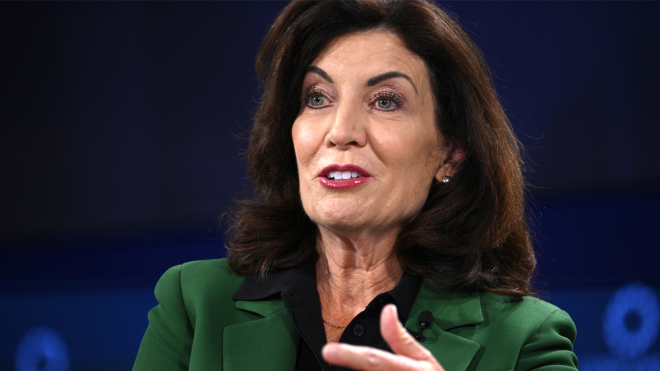ENGLAND — Boris Johnson ended a brief attempt to return to the position of British prime minister he was ejected from less than three months ago by declaring himself out of the running for the Conservative Party leadership on Sunday, while asserting he had the backing to do so.
He has withdrawn, making Rishi Sunak, the former head of the treasury, the overwhelming favorite to become the next prime minister of Britain. He might take first place as early as Monday.
“I believe I am well-positioned to deliver a Conservative win in 2024,” Johnson said. “And tonight I can report that I have crossed the extremely high hurdle of 102 nominations, including a proposer and a seconder, and I might put my candidacy in tomorrow.”
With the support of Conservative Party members, “there is a very real probability that I would win the election—and that I may indeed be back in Downing Street on Friday,” he declared.
But over the past few days, I have regrettably come to the terrible realization that doing this would be wrong. Without a cohesive party in Parliament, you can’t properly govern.
Johnson stated, “I am concerned the best thing is that I do not let my nomination to go forward and offer my support to whoever succeeds,” due to the failure to strike an agreement with Sunak and another candidate, Penny Mordaunt, the leader of the House of Commons.
I think I have a lot to contribute, but I’m afraid this just isn’t the appropriate time, he added.
Fewer than four months after his scandal-plagued administration came to an end and Johnson announced his resignation in a speech outside 10 Downing Street, rumors abounded that he would run for the Conservative Party leadership again and take over as the country’s new leader automatically.
Tim Bale, a politics professor at Queen Mary University of London, wrote in an email on Sunday that “no politician in postwar political history has ever lost the leadership of his party at the same time as losing the premiership and come back to win both.”
After Johnson’s successor, Liz Truss, abruptly resigned on Thursday as a result of a terrible economic plan that was swiftly reversed and that caused the pound to plunge and her cabinet to fall into disarray, the party was compelled to look for a new leader. She only served a six-week term.
Johnson’s return was demanded by a number of politicians, including several of his former Cabinet members, notably the defense minister Ben Wallace and the former home secretary Suella Braverman.
The former defense minister Mordaunt confirmed her candidacy last week, but Sunak, who announced his campaign on Sunday, would have been Johnson’s toughest rival.
Both were defeated by Truss in the previous election, but Sunak appears to have earned the backing of key figures on the party’s right flank this time around.
In a statement, Sunak, who if chosen, would become the first prime minister of Indian descent, said, “I want to improve our economy, unite our party, and deliver for our country.” In the 1960s, when many immigrants from Britain’s former colonies arrived to aid in the nation’s post-World War II reconstruction, his family immigrated to Britain.
One of Johnson’s prior supporters, Steve Baker, a significant lawmaker on the party’s right, supported Sunak.
This isn’t the time for Boris’s manner, Baker said in an interview with Sky News on Sunday. Johnson is still under investigation for possible misrepresentation of facts regarding Downing Street parties during Covid-19 lockdowns, Baker added.
If found guilty, he might be compelled to retire or face a suspension from office, which Baker described as “a sure calamity.”
Others have noted that Johnson’s three years in office were marred by controversies; he was ultimately forced to quit after more than 50 members of his government, including Sunak, announced their resignations.
They resigned over charges Johnson covered up the appointment of a lawmaker to a key post despite allegations of sexual misconduct.
William Hague, a former leader of the Conservative Party, predicted on Friday that Johnson’s election victory would send the party into a “death spiral.”
There can be a maximum of three candidates because the winner must receive nominations from 100 of the 357 Conservative legislators by Monday.
If two candidates receive this kind of support, they will advance to a vote among party members. The winner will be announced on Friday.
Johnson’s supporters, which include the foreign minister James Cleverly and the former chancellor Nadhim Zahawi, regard ham as a vote-winner who can win over voters nationwide with his celebrity status and particular brand of upbeat optimism. His supporters assert that he can secure the 100 seats in Parliament needed to qualify for the ballot.
However, Anand Menon, a professor of politics and international relations at Kings College London, said that there was a propensity among some of Boris Johnson’s followers and in some sections of the media to overestimate the candidate’s electoral appeal.
“A huge majority of the British people wanted him to quit as prime minister, and by the time he stopped being prime minister, his approval ratings were historically low,” he said. “So I don’t think it’s definitely accurate that Boris is the most well-liked person,” he said.
Bale was less kind to Johnson’s chances and more direct.
The majority of British citizens would view Boris Johnson’s return as yet another sick joke the Conservative Party has played on the nation in recent months, and many of them wouldn’t find it the least bit amusing.













